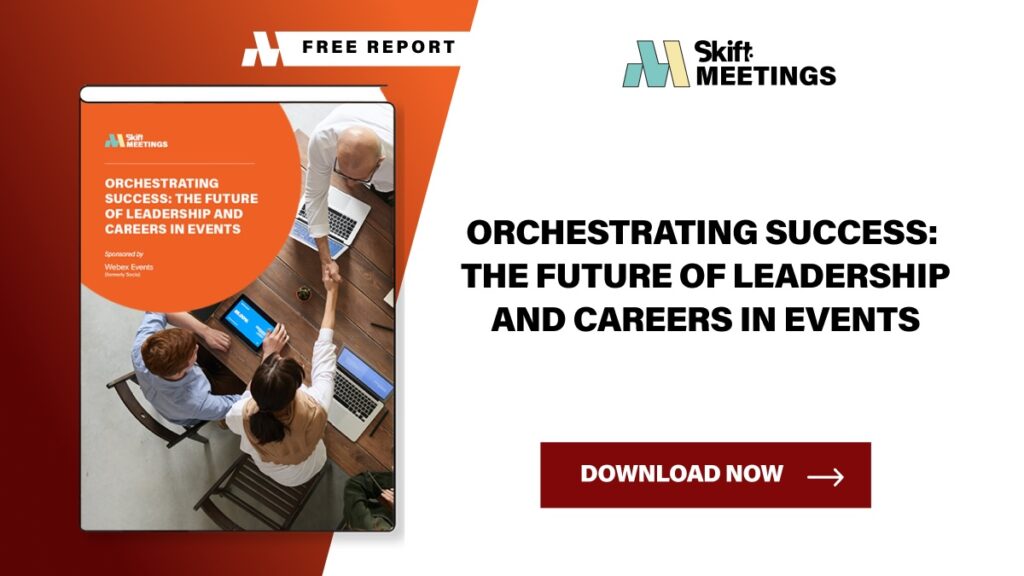A Guide to Leadership and Careers in Events

Skift Take
The events industry is diverse and ripe with opportunities at every level. Understanding the best way to find your way to a dream job can appear daunting. Expert guidance is the best way for event professionals to find their best way forward.
Skift Meetings has produced a new report to guide event professionals at various stages of their careers. "Orchestrating Success: The Future of Leadership and Careers in Events” features career strategies, practical tips, and best practices for career advancement.

The U.S. Department of Labor reported a mass exodus from an older demographic, leaving a talent vacuum throughout the workforce. The report highlights significant trends and the most valuable skills employers seek and features insights from top industry professionals.
Pursuing a Career with Purpose
Whether pursuing a career as an events planner, in a marketing role, an audio-visual expert, or in other numerous fields in the events industry, knowing where to start will keep the job search tight and focused. The report delves into various career opportunities, offering in-depth descriptions of what it takes to reach a specific career goal.
For new professionals starting their careers, the outlook for landing a specific role may depend on education. Still, career paths in the events industry provide professionals with ample flexibility, allowing for advancement based on transferable skills.
Professionals from different industries seeking to switch to the events have plenty of options. The report highlights employers looking for overall professional experience instead of having skillsets explicitly honed to one area of expertise. It offers guidance in leveraging such experience to exploit the industry’s versatility. The report also illustrates possible roadmaps at various career stages, from entry-level to C-suite positions.
Tools of The Trade
The events industry is flushed with new trends involving technology and desirable skills that help event professionals boost productivity and ultimately help clients achieve their goals. While certain emerging technologies, such as AI, promote efficiency, many other subsequent skills are gaining steam.
The report looks at how event professionals can leverage emerging technologies to improve performance. It offers the inside scoop on what professionals need to know with insider advice from developers and the professionals who use them.
While bleeding-edge tech creates an additional layer of excitement around the prospect of pursuing a career in events, it’s essential to be aware of the tried and true skills employers seek. The events industry is built on relationships, and understanding how to embrace soft skills will successfully demonstrate the ability to create balance in a multi-faceted and fast-paced environment.

Being a Part of Something Bigger
It may surprise newcomers that professionals in such a close-knit community could facilitate such an immense industry. Success in events often relies on extensive networks curated organically through channels such as professional associations.
Newcomers may feel they’re in the dark regarding reaching out and building professional connections. The report offers expert advice on approaching other event professionals to expand their network and engage in mentorship opportunities. It also guides finding ways to convene with other professionals to share industry knowledge and resources.
The events industry is both dynamic and rewarding. Most seasoned professionals will affably tell those new to the industry, “there’s never a dull moment.” They would also say there’s no better feeling than pulling off a stunning event. Events that impact attendees through a memorable experience and a sense of belonging are worth participating in.
Embracing this report as a roadmap, regardless of career phase, will point you in the right direction.




